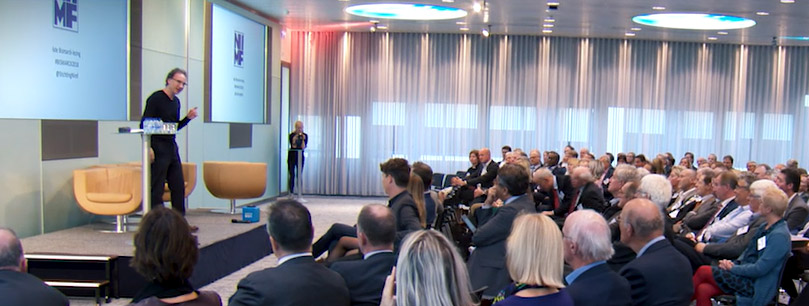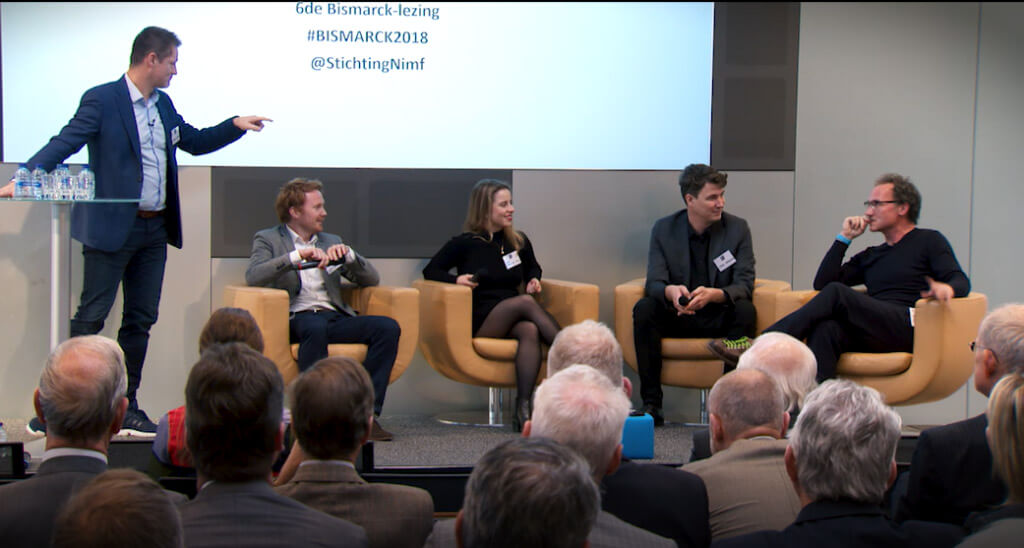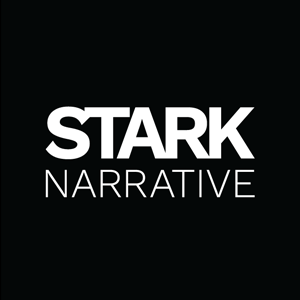The 6th annual Bismarck-lezing hosted by the Netherlands Investment Mangers Forum (Stichting NIMF) cast a philosophical light on the pension sector. Bas Haring, professor and ‘people’s philosopher’, took to the stage to demarcate the problematic elements that continue to hinder the sector, particularly in the context of technological developments and digital transformation. The audience – full of board members, asset managers, insurers, and other incidentals – settled in to listen.
Haring’s primary message can be encompassed with three points:
- Do not assume that things will develop, anticipate that things will remain the same.
- People find it difficult to think about the future.
- Make practical agreements with one another.

The first point was difficult to stomach for panel participant and representative of the PensioenLab, Rosa d’Adelhart Toorop. At the ripe age of 23, Rosa’s appreciation for rapid and inevitable change is rife amongst her peers. PensioenLab attempts to harness that appetite for evolution by targeting individuals aged 20 – 35 and to become active in the Dutch pension sector. They are currently spearheading initiatives that leverage biometric analysis and artificial intelligence to help younger generations make wise decisions when filling up their pension pot. According to d’Adelhart Toorop, an app that uses DNA profiling to predict life expectancy is currently being developed. Some audience members wondered where the moral boundary was. “Yes, we are getting into uncharted territory with some of these initiatives. But we must come to terms with the fact that we are all going to live until we are 120,” d’Adelhart Toorop exclaimed.
This leads to Haring’s second point: if a 20-year knew that they had another 100 years to live, would that make them more interested in their future? Perhaps it would. Or perhaps it would simply make them more complacent. Pension funds exist because people either cannot or do not wish to take sole fiscal responsibility for their financial future. Be it via an app or AI, tech can be used to help pension funds gain greater insight into the profiles of each client; tech can also be used to enhance communication to ensure that complex investment processes are increasingly understandable for all parties involved.
Bismarck-lezing panel

Greater transparency is directly related to Haring’s third point, as it has a direct effect on the practicality of agreements made between pension funds and the public. Hidde Terpoorten, Blockchain Lead at APG, succinctly explained how the use of ledger technology in smart contracts would make administrative processes immensely more efficient, secure and transparent. A key element for the successful implementation of smart contracts is the creation of an ecosystem, as it will only optimally work if all necessary parties actively participate. This could be a partial solution to the resounding call for greater solidarity: such an ecosystem could be an ideal way to incentivize cooperation among competitors.
Otto Hulst, Innovation Lead KAS Lab (named young pension fund manager of 2018), also sees the value of a practical agreements, in this case between shareholders and companies. He leads a team that has utilized blockchain in proxy voting via an app; it allows shareholders to gain greater insight into the voting process, provides new opportunities to enter into active dialogue with listed companies.
Those on the panel and in the audience acknowledged that digital transformation is vital for the Dutch pension sector to achieve greater precision and efficiency. However, they collectively realized that they were just scratching the surface. From a philosophical vantage, those within the sector may be able to temper their assumptions about development. However, from a practical stance, many accept that they must anticipate change.
